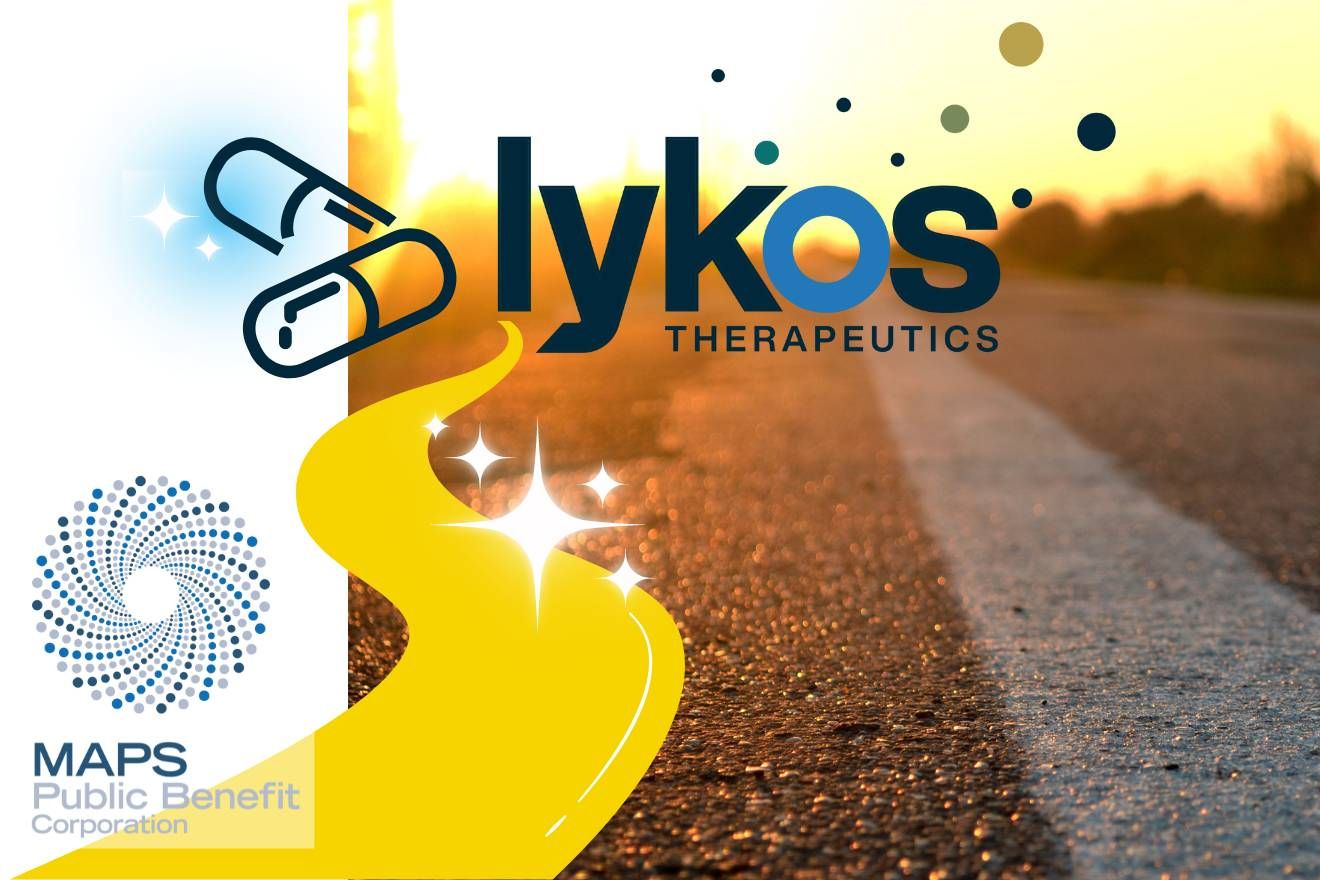At the end of last year, the MAPS Public Benefit Corporation (now Lykos Therapeutics) submitted an application to the Food and Drug Administration (FDA) to get MDMA therapy approved as a medication. This is specifically for the treatment of post-traumatic stress disorder (PTSD). This marked a monumental step toward making MDMA-assisted therapy legal for people struggling with the ongoing effects of trauma.
But if MAPS gets its submission approved, what will legal MDMA therapy look like? And when can the company expect to gain approval? In this article, we will explore these important questions. We’ll also provide some more details about MAPS’ role in the legalization of MDMA-assisted therapy.
What is MDMA Therapy?
MDMA therapy involves the administration of MDMA alongside talk therapy and psychological support. Therapists are present with a client before, during, and after their MDMA session(s). The goal is to alleviate mental distress, which is often severe, debilitating, and unresponsive to conventional treatments.
Researchers and clinicians describe three distinct phases of this therapy: preparation, the MDMA experience, and integration. The non-psychedelic components, which involve talk therapy, are essential for both effectiveness and safety. A therapeutic alliance and trust are developed during the preparation stage, alongside an exploration of the participant’s struggles. Preparatory sessions also help familiarize patients with MDMA therapy and allow time to address questions and concerns.
The setting for MDMA therapy, even within clinics or research institutes, tends to be a living room-like environment. These spaces are quiet, decorated with pleasing artwork and/or flowers, and provide an aesthetically pleasing ambiance. This is to encourage a positive experience.
During the dosing session, the participant will sit or lie on a couch, wear an eye mask, and, at times, listen to a carefully selected playlist of music. The participant ingests a full dose (75–125 mg) to start and an optional second dose (half the quantity of the first) about two hours into the session. The session, which lasts 6–8 hours, is non-directed by the therapy team. This means that the client follows wherever the experience leads them—they are invited to access their inner healing intelligence. The therapists provide an empathetic presence and rapport, offering gentle help and emotional support if needed.
In the following days and weeks, talk therapy-only sessions are conducted. These allow the participant to process, make sense of, and meaningfully express their experience(s). Therapists can also offer support for any challenging issues that arise during the drug session.
The Efficacy of MDMA Therapy
Rick Doblin founded the nonprofit Multidisciplinary Association for Psychedelic Studies (MAPS) in 1986, and in 2014, a fully-owned subsidiary of the nonprofit was launched to conduct clinical research trials (MAPS Public Benefit Corporation). However, it didn’t start its first clinical trial testing MDMA therapy for PTSD until 2004. Since then, the organization has funded other MDMA studies, leading to impressive results and a “Breakthrough Therapy” designation from the FDA in 2017. This meant the FDA agreed that this treatment has a meaningful advantage over available medications for PTSD. This decision also expedited the review of data by the FDA after completion of Phase 3 clinical trials.
From 2020 to 2022, MAPS PBC completed Phase 3 clinical trials for MDMA therapy for the treatment of PTSD, confirming its efficacy and safety. Both studies were published in Nature Medicine in 2021 and 2023, respectively (here and here).
MAPS-sponsored phase 2 studies also found that MDMA-assisted therapy was effective at alleviating social anxiety in adults on the autism spectrum, end-of-life anxiety, and relationship issues where one partner has PTSD. Other research indicates MDMA therapy can effectively treat problems comorbid with trauma. These include alcohol use disorder, depression, anxiety, anorexia nervosa, and binge eating disorder.
MAPS’ NDA Submission
In December last year, MAPS PBC submitted a New Drug Application (NDA) for MDMA-assisted therapy for PTSD to the FDA. This marked the first NDA submission for any psychedelic-assisted therapy. The submission represented 30+ years of clinical research into using MDMA therapy to treat PTSD. The NDA included two Phase 3 clinical trials that both met primary and secondary endpoints. The primary endpoint for both studies was to assess changes in PTSD symptom severity, while the secondary endpoint was to assess improvement in functional impairment associated with PTSD.
MAPS PBC Changes to Lykos Therapeutics and Receives $100M in Funding
In January this year, MAPS PBC changed its name to Lykos Therapeutics. It also announced it closed a Series A financing for more than $100M led by Helena. This funding will support Lykos’ regulatory and pre-launch activities for MDMA therapy for PTSD. Doblin stated:
“Helena is the right partner to help position Lykos in its transition from a research-focused public benefit company, wholly owned by a nonprofit, to a PBC with mission-aligned investors focused on obtaining FDA approval and insurance coverage for prescription use of MDMA-assisted therapy by appropriate patients with PTSD.”
When Can I Get MDMA Therapy?
Patients struggling with PTSD may now be wondering when they can access legal MDMA therapy. Since the FDA review process takes 6–10 months, it was uncertain when exactly this year MDMA therapy would gain FDA approval. However, in February, the FDA granted the application priority review and assigned a Prescription Drug User Fee Act (PDUFA) target date of August 11, 2024.
“Securing priority review for our investigational MDMA-assisted therapy is a significant accomplishment and underscores the urgent unmet need for new innovation in the treatment of PTSD,” said Amy Emerson, chief executive officer of Lykos Therapeutics.
The FDA grants priority review for drugs that—if approved—would offer significant improvements in safely and effectively treating serious conditions. (There have been no new FDA-approved drug treatments for PTSD in over 20 years.)
The priority review and PDUFA mean that MDMA therapy for PTSD could become an FDA-approved treatment this summer.
If the FDA approves MDMA as a medicine, they will make a recommendation to the Drug Enforcement Administration (DEA) about rescheduling MDMA, which is anticipated to apply only to Lykos Therapeutics’s MDMA product. Recreational MDMA would remain a Schedule 1 drug.
But even with an approved FDA medicine, state drug laws don’t automatically go into effect after DEA reschedules. According to attorney Kimberly Chew, “Some states — about half of them — follow federal rescheduling, but others say that the decision for rescheduling is under the discretion of a certain governing body, or that the state legislature must vote to reschedule a drug, which, as you can imagine, is the most difficult. Last year, California and Arizona passed bills that would allow their states to follow federal rescheduling, but there are still many other states that will have to go through additional processes before the drug is officially rescheduled there.”
What Will FDA-Approved MDMA Therapy Look Like?
When approved, you can expect legal MDMA therapy to look very similar to what has been studied in clinical trials. Nevertheless, some processes won’t become clear until close to FDA approval. Lykos will have recommendations for implementation, but many of these decisions will ultimately be made by the FDA, DEA, and insurers.
While the FDA regulates drugs, it doesn’t regulate therapy. Therefore, Lykos may set some standards for therapeutic practice. Other standards will come from insurers and professional organizations.
The Essential Components
Lykos strongly recommends that therapy be required for PTSD patients to access MDMA. They also believe that two therapists should be present during MDMA sessions, with this requirement included on the drug label. In addition, the organization recommends preparation and integration therapy, but specifics around the number of sessions will likely not be on-label requirements. Lykos plans to advocate for clinical practice guidelines around non-drug therapy sessions.
Each non-drug session could be around 90 minutes long. Most likely, the FDA will require 6-hour monitoring for the drug sessions. The MDMA therapy care team will most probably consist of three separate people:
- Physician or other prescriber: This person will conduct medical evaluations and prescribe MDMA. They will be on-call during drug sessions but won’t need to be present during them.
- Licensed behavioral health provider: This person(s) will develop a therapeutic relationship with the patient during non-drug and drug sessions.
- Paraprofessional: This person will be present during drug sessions along with the therapist. They will be trained in MDMA-assisted therapy but will likely not be required to be a licensed health provider.
Widespread MDMA Therapy
Lykos’ goal is to help 1 million patients with PTSD by 2031. To do this, they’ll likely need to train at least 30,000 therapists in the next two years. However, not all training will be associated with Lykos. Other organizations offer psychedelic-assisted therapy programs that will allow students to act as trained MDMA therapists. Lykos hopes to create a framework for training that can be distributed by many third-party educators.







